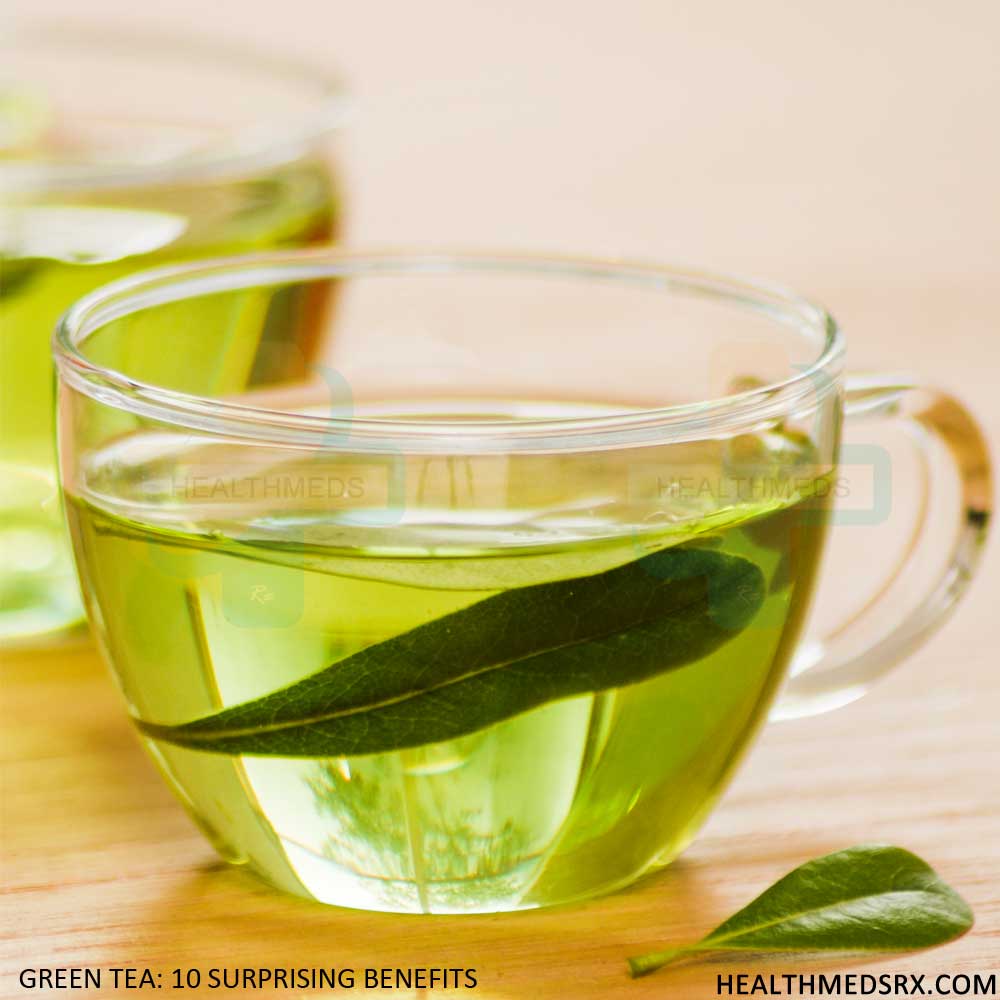Green tea, with its origins in China, has a long history and is now more than 4,000 years old. Black tea or oolong tea is made from oxidized tea leaves, while green tea is made by steaming or pan-sifting the leaves immediately after harvesting to avoid the fermentation process. This process achieves the retention of real polyphenols and antioxidants during their processing.
Green Tea is made from the leaves of the Camellia sinensis plant and contains several active ingredients that have powerful health benefits. The main active components are antioxidants called catechins, particularly catechin called epigallocatechin gallate (EGCG). Catechins have been proven to possess anti-inflammatory, anti-carcinogenic, and anti-aging properties.
Let’s take a closer look at how sipping green tea can positively impact your health.
Antioxidant Properties:
Green tea is high in polyphenols and catechins, which are powerful antioxidants. The main catechin found is called epigallocatechin gallate (EGCG), which is also the most abundant one. Antioxidants help neutralize free radicals, which are unstable molecules that can damage cells and cause diseases like aging and cancer. The antioxidants can reduce the risk of certain cancers, such as breast, prostate, and colorectal cancer.
Weight Loss:
Green tea contains two powerful compounds that promote weight loss: EGCG and caffeine.
Among the bioactive substances found in green tea, EGCG (epigallocatechin gallate) is the one that accelerates the metabolic rate and increases the fat-burning level. It has been shown in a couple of research that EGCG enhances fat breakdown, especially belly fat. This capacity to burn grease is considered as the reason behind the fact that drinking it may lead to the dropping of weight.
Brain Function:
In particular, green tea contains neuroprotective components that can reduce the likelihood of cognitive decline and at the same time improve cognitive function. It also contains caffeine which is a stimulant that helps the brain to be more alert by increasing concentration levels.
Overall, the antioxidants can optimize brain health and cognitive function throughout life. By drinking just a few cups per day, you may boost your memory, focus, and ability to learn new information.
Good for Erectile Dysfunction:
In a given study in 2008, the results were that men drinking green tea every day for six consecutive months had significantly less fats in their genital organs, which meant that enough blood flow was going through them to get an erection. Furthermore, free radicals that harm blood vessels are the die to catechins and these let the blood flow easily through to organs below the belt. Some researchers believe that consuming it is especially effective in improving age-associated Erectile dysfunction disorders and is a powerful natural tonic for older men.
Benefits for your Skin:
Green tea helps to improve skin texture and to get a lasting glow from the inside. It can be consumed or used topically. It does the job of shielding the skin from damage by curbing inflammation and neutralizing free radicals, taming aging effects. Additionally, by drinking it twice a day, you might create a green tea toner and face application.
Heart Health:
Green tea may have potential benefits for heart health due to its antioxidant and anti-inflammatory properties. Some research suggests that the catechins in green tea may help lower cholesterol levels, improve blood vessel function, and reduce the risk of cardiovascular disease. Polyphenols also help lower blood pressure and reduce the risk of blood clots. Adding it to your diet can be a positive step for heart health.
Green Tea for Liver:
Green tea may offer some potential benefits for liver health. The antioxidant properties can help protect the liver from damage caused by oxidative stress and inflammation. The consumption also reduces the risk of liver diseases such as fatty liver disease, liver fibrosis, and liver cancer.
Although it can be part of a healthy diet that supports liver function, it’s important to remember that overall lifestyle choices, including limiting alcohol intake, maintaining a healthy weight, and avoiding exposure to toxins, are important for liver health.
Diabetes Management:
Studies show that the catechins in green tea can help improve insulin sensitivity and control blood sugar levels. Green tea’s antioxidant properties also help reduce inflammation and oxidative stress, which are associated with diabetes complications. It is said to be part of a healthy diet for people with diabetes.
Cancer Prevention:
Green tea has potential cancer-preventive properties due to its high antioxidant content, particularly catechins such as EGCG. These antioxidants effectively neutralize free radicals in the body, which significantly contribute to the development of cancer. Also, the extracts can inhibit the growth of cancer cells and reduce the risk of certain types of cancer.
Immunity:
Green tea contains antioxidants and polyphenols that support the immune system by reducing oxidative stress and inflammation in the body. These compounds have been shown in some studies to have potential immune-enhancing properties.
In addition to these major benefits, green tea has been linked to stronger bones, pain relief, oral health, and more. The wide range of benefits can be attributed to the unique set of bioactive compounds.
To enjoy the benefits, aim for 2-3 cups per day. Choose high-quality, loose-leaf green tea and steep it for 3-5 minutes at 160°F – 180°F. Adding lemon can increase the antioxidant availability. Green tea is safe for most people and can be a healthy addition to your daily routine.


